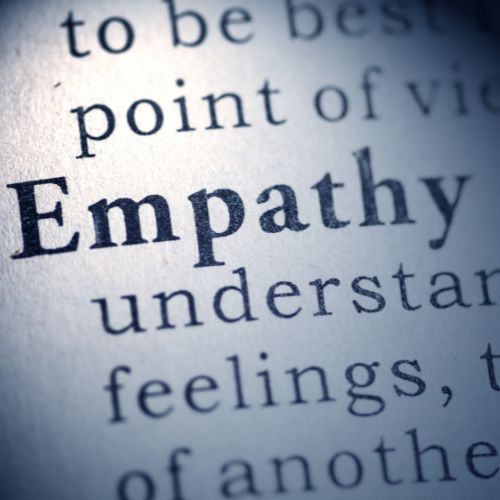
The Role of Empathy in Building a Stronger Relationship
Empathy, the ability to understand and share the feelings of another, plays a crucial role in fostering strong, healthy relationships. It enhances communication, strengthens emotional bonds, and promotes mutual respect. This guide explores the importance of empathy in relationships and provides practical strategies for cultivating empathetic connections.
1. Understanding Empathy
Empathy goes beyond sympathy, which involves feeling pity for someone’s misfortune. Instead, empathy is about putting yourself in another person’s shoes and experiencing their emotions from their perspective.
- What to do: When engaging with your partner, practice active listening, which involves fully concentrating on what they say, understanding their emotions, and responding thoughtfully.
2. Enhancing Communication
Empathy significantly improves communication between partners. When both individuals feel understood, they are more likely to express their thoughts and feelings openly.
- What to do: Use “I” statements to express your feelings, such as “I feel hurt when…” This approach encourages your partner to empathize with your experience without feeling attacked or defensive.
3. Building Emotional Connection
Empathy fosters emotional intimacy, allowing partners to connect on a deeper level. Sharing feelings and validating each other’s experiences creates a safe space for vulnerability.
- What to do: Share your emotions regularly and invite your partner to do the same. Create a supportive environment where both of you feel comfortable discussing your feelings, whether positive or negative.
4. Conflict Resolution
In conflicts, empathy can transform disagreements into opportunities for growth. Understanding your partner’s perspective can lead to more productive discussions and resolutions.
- What to do: During conflicts, take a moment to consider your partner’s feelings and motivations. Ask open-ended questions to encourage dialogue, such as “How do you feel about this situation?” This practice helps de-escalate tensions and fosters collaboration.
5. Fostering Trust
Empathy builds trust, as partners who understand and validate each other’s feelings are more likely to feel secure in the relationship. Trust is essential for a strong and lasting bond.
- What to do: Consistently demonstrate empathy through small gestures, such as checking in with your partner about their day or offering support during challenging times. These actions reinforce trust and strengthen the relationship.
6. Encouraging Support
When empathy is present, partners are more likely to offer and receive support. Understanding each other’s emotional needs creates a supportive atmosphere where both individuals feel valued.
- What to do: Be proactive in offering support when you notice your partner is struggling. Ask them how you can help, and be genuine in your desire to be there for them.
7. Practicing Self-Empathy
To empathize with others, it’s essential to practice self-empathy—understanding and acknowledging your feelings. Self-awareness enables you to connect with your partner’s emotions more effectively.
- What to do: Reflect on your feelings regularly and allow yourself to experience them without judgment. Journaling or meditating can help enhance your self-awareness, making you more empathetic towards others.
8. Cultivating Empathy Through Perspective-Taking
Developing the skill of perspective-taking enhances your ability to empathize. This involves actively trying to see situations from your partner’s viewpoint.
- What to do: When faced with a disagreement, take a moment to imagine how your partner feels. Ask yourself questions like, “What might they be experiencing right now?” This practice encourages understanding and compassion.
9. Empathy in Everyday Interactions
Empathy should be a part of daily interactions, not just reserved for moments of conflict or difficulty. Regularly showing empathy strengthens the overall connection between partners.
- What to do: Make a habit of expressing appreciation and validation for your partner’s feelings. Simple acknowledgments, such as “I understand why you feel that way,” can significantly enhance emotional closeness.
10. Creating a Culture of Empathy
Building a culture of empathy within the relationship involves encouraging both partners to prioritize empathy in their interactions.
- What to do: Set aside time for regular discussions about feelings, goals, and challenges. Encourage each other to share experiences openly, fostering an environment where empathy is valued and practiced.






